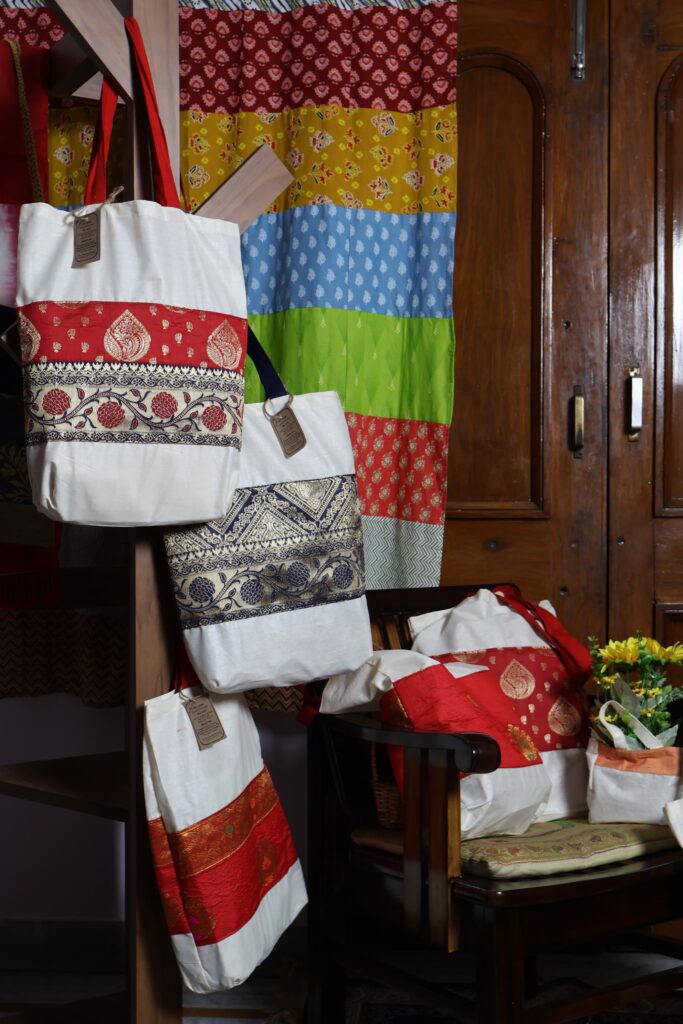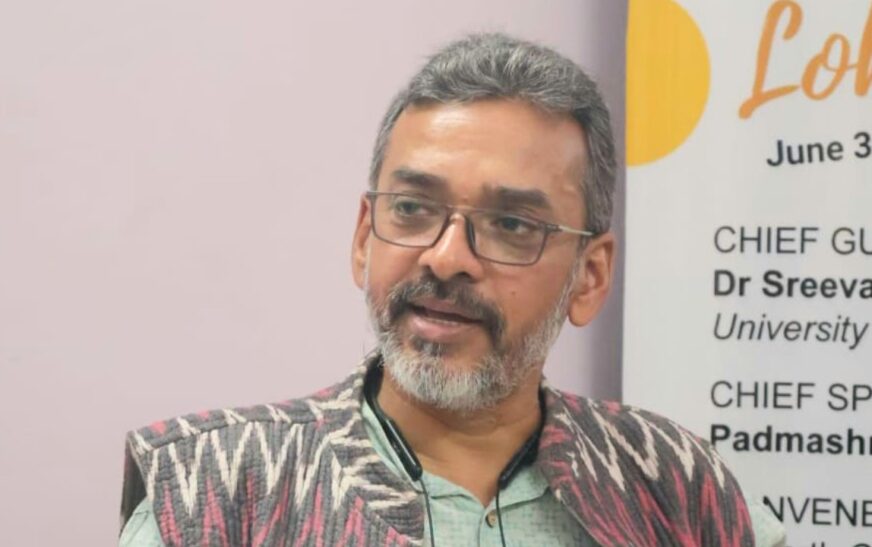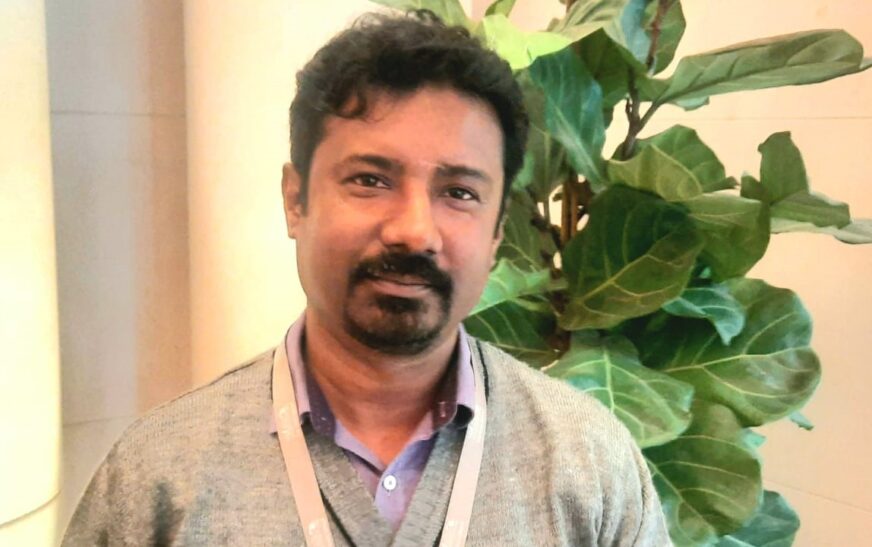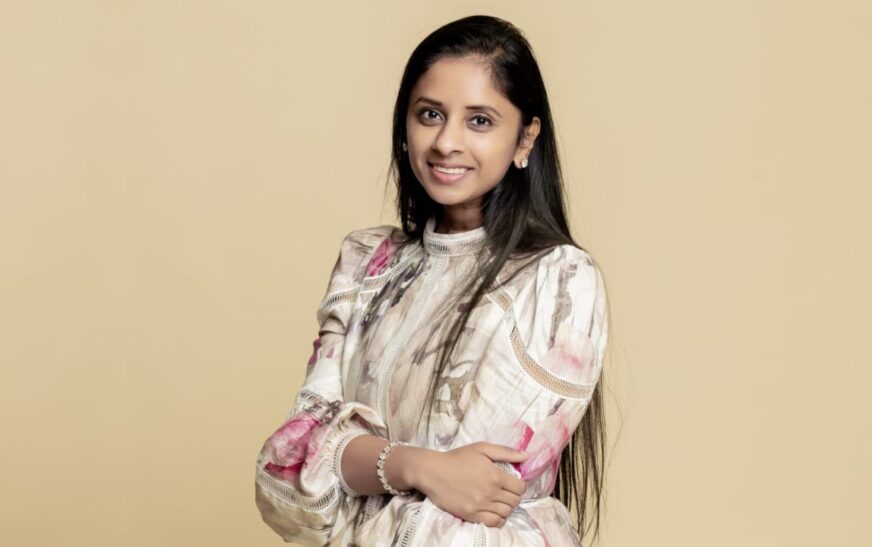Beggars’ Corporation stands apart from typical NGOs engaged in fundraising and receiving donations to alleviate the socioeconomic challenges of the nation. Instead, it represents the world’s pioneering “for-profit” organization, dedicated to transforming beggars into entrepreneurs. This visionary concept was inspired by Chandra Mishra, a journalist turned social worker, who firmly believes in providing beggars with an opportunity to lead lives of dignity through alternative livelihoods.
In an exclusive interview with The Interview World, Chandra Mishra, the Founder and CEO of Beggars’ Corporation, articulates the organization’s mission to empower beggars to work and earn with dignity. The following excerpts highlight key insights from his interview.
Q: What did inspire you to set up Beggars’ Corporation?
A: Decades ago, the idea of empowering beggars had already taken root in my mind. However, it was the momentous laying of the foundation stone for the Ram Temple in Ayodhya on August 5, 2020, that significantly deepened my reflections. I found myself contemplating the paradox – if we are fervently constructing the Ram Temple and striving for Ram Rajya, shouldn’t we ensure that beggars are not deprived of their dignity? Why can’t they be afforded a dignified means of living? This pivotal incident sparked a profound realization, motivating me to establish the Beggars’ Corporation to transform beggars into entrepreneurs.
In the year 2020, I found myself in Varanasi, actively engaged in conducting a workshop on skill development and employment. On January 1, 2021, while on my way to the Baba Viswanath temple, I encountered numerous beggars. Their presence was a daily occurrence, particularly since I was residing near the Ghat. Intrigued, I began interacting with these beggars but encountered reluctance among them to join my entrepreneurial initiative.
The situation took a turn with the onset of the second lockdown in 2021. It resulted in the loss of livelihood for these beggars as the usual influx of tourists to Varanasi ceased. Subsequently, a few beggars reached out to my colleagues, prompting us to embark on an experimental journey with the idea. This initiative officially commenced with one lady beggar in August 2021.
Initially, we provided training to a woman in need on the art of stitching. Subsequently, we crafted a variety of bags, ranging from laptop-cum-conference bags to general carry bags. Following the completion of our production, we delivered the inaugural batch to a packaged foods seminar hosted by an NGO at Hotel Diamond.
Q: How was your journey after this notable incident?
A: When I presented the bags at the seminar, esteemed guests, including the renowned sarod player Pandit Vikash Maharaj and Prof. Vishwambhar Nath Mishra, the Professor & Head of the Department of Electronics Engineering at IIT (BHU) Varanasi, who is also the President of Sankat Mochan Foundation, Varanasi, offered tremendous support. They encouraged people to back our initiative. Subsequently, my focus shifted towards formalizing the Beggars’ Corporation, which, until then, existed as an informal organization.
In November 2021, BL Santhosh, BJP’s National General Secretary, extended an invitation to me and purchased the bags for the national executive meeting in Delhi. During this event, I had the opportunity to meet Dr. Krishnamurthy Venkata Subramanian, the Former Chief Economic Adviser to the Government of India and India’s Executive Director at the IMF. Dr. Subramanian not only expressed keen interest but also encouraged. Notably, he mentioned in one of his tweets, “”Beggars Corporation” is a unique initiative – the first of its kind in the world – to transform beggars into self-dependent individuals.”
In December 2021, major Indian newspapers featured our inspiring story, thrusting us into the limelight. Friends and well-wishers shared news clippings, marking a sudden surge in recognition. Finally, on August 12, 2022, we officially registered the Beggars’ Corporation as a for-profit organization, distinguishing it from the conventional NGO model.
A significant incident occurred in early 2022 when the Government of India launched the SMILE project for transgenders and beggars. Despite our non-NGO status and lack of prior dealings with the government, we received a formal invitation from the Ministry of Social Justice and Empowerment. Although they proposed that we register as an NGO, we firmly expressed our belief that charity perpetuates poverty, advocating for a for-profit model instead.
In July 2022, we appealed to the public through social media, urging them to invest Rs. 10,000 instead of donating. This call resonated with 57 individuals who collectively invested Rs. 5.7 lakh between mid-July and mid-August 2022. Reinvesting this money, we empowered beggars to produce bags and garnered recognition as a social impact startup.
Recognized by the Department for Promotion of Industry and Internal Trade (DPIIT), Government of India, we were listed among the top 100 innovative startups in the country. Two days before National Startup Day, we were notified of our selection as one of the 16 mindful entrepreneurs. Notably, we provided a 16.5% return on investment to our initial backers, but their interest lay in reinvesting the money into our noble initiative.
In April 2023, we were honored as one of the 25 innovative entrepreneurs in the Innopreneurs Global Startup Contest, receiving the Best Social Impact award. Since our official incorporation, from August 12, 2022, to March 2023, we generated a revenue of approximately Rs. 69 lakh, showcasing the remarkable success of the Beggars’ Corporation.
Q: How many beggars are associated with you and how are they changing their livelihoods under your programs?
A: So far, we’ve successfully transformed 17 individuals from beggars into entrepreneurs. Out of this group, 14 are actively collaborating with our organization, while the remaining three have established their independent ventures.
Within the framework of our Bagful of Dreams initiative, we craft a variety of products such as bags, stoles, door screens, and window screens, using cotton and silk patchworks. Our diverse range of bags encompasses conference and laptop bags, gift bags, and shopping bags, totaling 12 distinct types.
Another noteworthy project in our portfolio is the Poonya project, specifically catering to puja materials, with a special focus on Monday Jalavhishek. For an entire year of Jalavishek on 52 Mondays, we charge Rs. 10,000, equivalent to approximately Rs. 200 for each Monday Jalavishek. Notably, the beggars themselves supply all the required puja materials for this activity.
To date, this initiative has gained traction, with 1200 individuals availing themselves of our Jalabhishek services. This not only underscores the impact of our projects but also highlights the meaningful transformation we’re fostering in the lives of those involved.
Q: What’s your big plan down the line?
A: We’ve devised a foolproof strategy to propel us forward – a blueprint for transforming Varanasi into India’s first beggar-free city within the next three years. Currently, Varanasi harbors around 6,000 beggars, including over 1,000 who are physically challenged. Our approach involves targeting their families, with a particular focus on those aged 18 to 45 and possessing able bodies.
To implement this plan, we identify 800 to 1,000 families and gather 50 families in one batch. These families are then relocated to Ghats or a secure location for a comprehensive three-month training program. Throughout this period, they receive Rs. 7,000 monthly as livelihood support. We invest Rs. 1 lakh in their businesses, providing an additional Rs. 10,000 each month. The families sign a three-year contract, and upon completion, they receive a lump sum of Rs. 1 lakh.
Funding for our projects doesn’t come from the government, CSR, or VC funds for startups. Instead, we’ve implemented the “One Beggar One Mentor” scheme. For every beggar onboarded, a mentor invests Rs. 2 lakhs for three years. Each project involves 12 beggars and their corresponding mentors, creating a Special Purpose Vehicle (SPV) – the Beggars’ Corporation. Beggars hold a 24% stake, ensuring they are not just workers but also owners. Profits after three years are shared among the beggars and mentors, with the Beggars’ Corporation retaining a 52% share for managing finance, training, product design, marketing, and collaborations.
Our initiative extends beyond Varanasi through the “Citizens for Begging Free India” program, serving as a pilot model. Success in this endeavor will lead to replication throughout India. Inspired by the notion in Ramcharitmanas that Ram Rajya eliminates poverty and misery, we aim to empower beggars as entrepreneurs. This transformation will not only free them from dependence on charity but also enable them to contribute to the nation’s GDP, establishing a true Ram Rajya in our country.











2 Comments
Great initiative
hi!,I really like your writing very much! percentage we keep up a correspondence more approximately your article on AOL? I require an expert on this space to unravel my problem. May be that’s you! Taking a look ahead to see you.